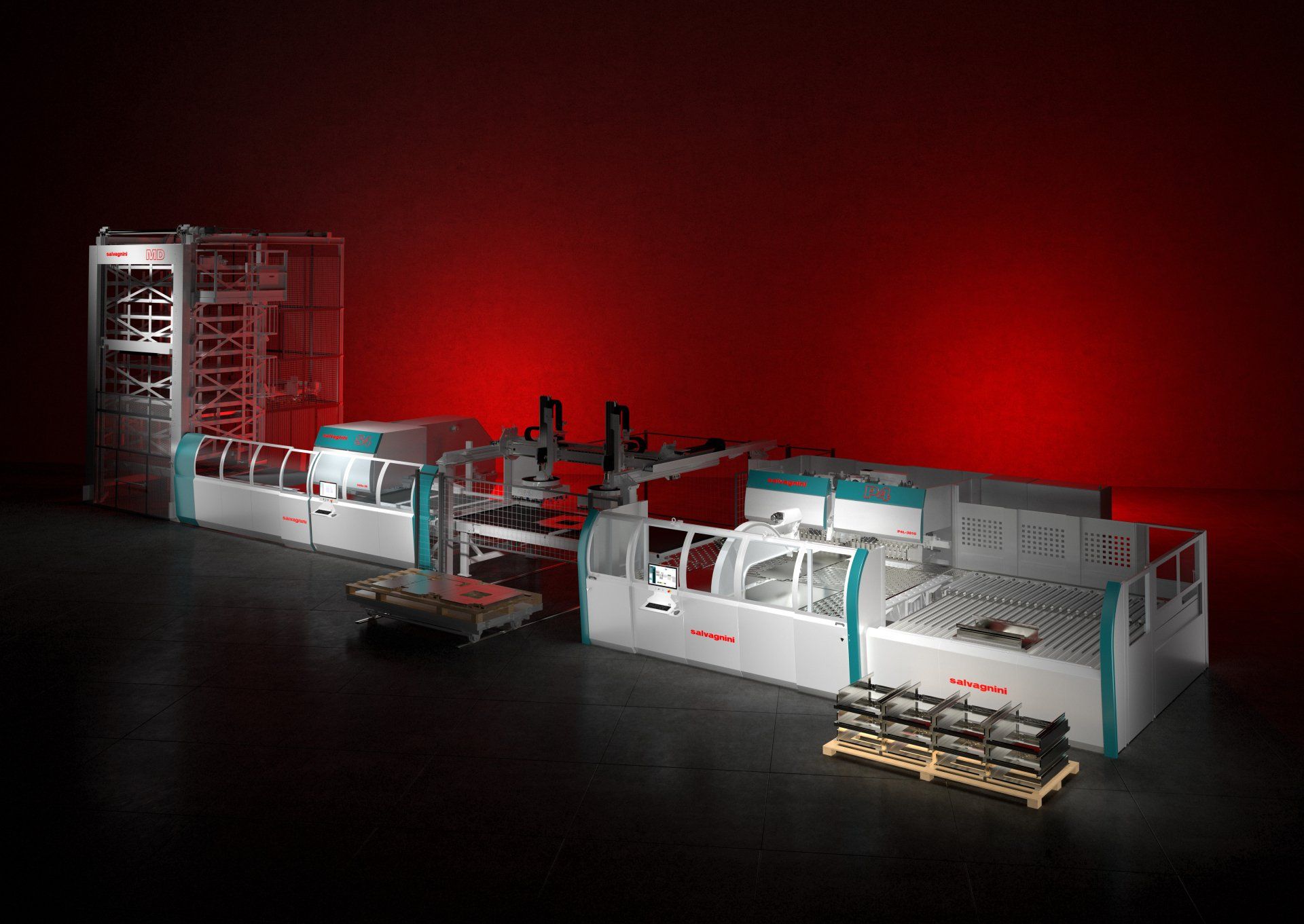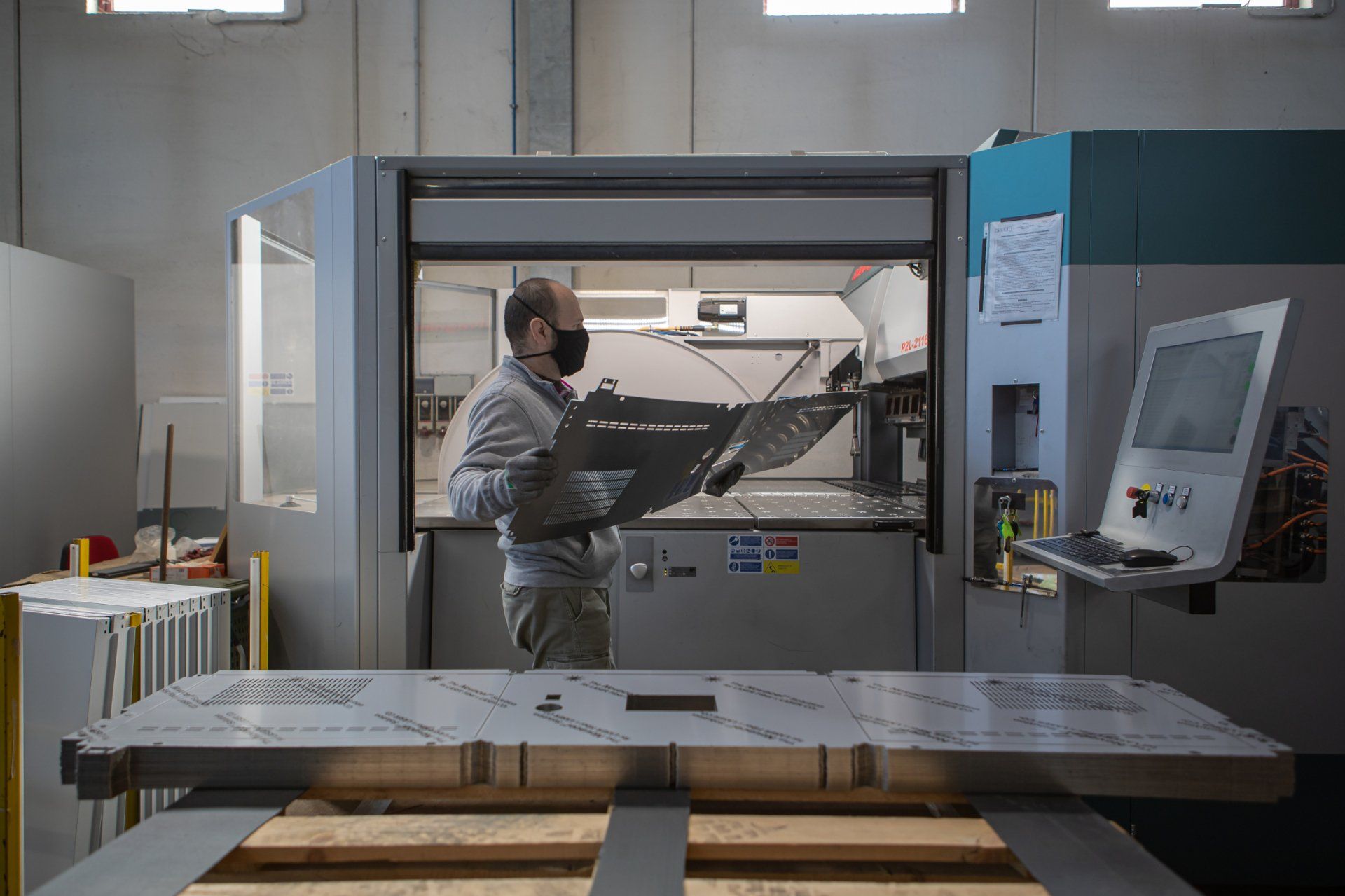Salvagnini boasts over 40 years of expertise and skill in the field of automatic bending, with over 4000 installations in 76 countries worldwide. And the panel bender is the machine which more than any other represents the spirit of the Group, as it combines cutting-edge technology with sustainability, productivity and flexibility.
Since 1977, the year in which Guido Salvagnini designed and built the first model of P4, the panel bender has never stopped evolving: today it is a solution with proven reliability, an automatic machine in all aspects and ideal for a modern smart factory. Recently it was re-industrialized and further improved, thanks to the joint effort of two of the Group’s production hubs: Ennsdorf, the world’s largest panel bender production site, and Sarego, which specializes in P4 models with maximum bending heights of 254 mm. A total of over 600 specialist technical personnel work in the engineering department and on the shop floor.
SIGN UP TODAY TO STAY IN THE KNOW OF EVERYTHING THAT SALVAGNINI HAS TO OFFER
Rapid industrial developments of recent years continue to set tough challenges.
Because industry has changed: flexibility and efficiency are crucial requirements for managing increasingly smaller batches, rapid item turnover rate and tight lead times.
We will get back to you as soon as possible
Please try again later
Sustainable technology
Salvagnini lean panel benders use only electric actuators. Bending cylinders are driven by brushless motors, which offers great advantages in terms of the reduced wear and deterioration of components that, unlike in other similar technologies, are no longer subjected to continuous extreme mechanical stress. The wiring and masked-time cycles help to use all the absorbed energy in the best way possible, without returning it to the grid and without it being dissipated as heat.
“But the sustainability of this technology is best understood by turning it into real numbers,” explains Nicola Artuso, Salvagnini Product Manager for bending technologies. “Considering the panel benders sold since we introduced lean technology in 2014, and estimating the use of the systems over a double shift, we can say that we have saved at least 36GWh – the equivalent of the annual consumption of over 14000 people in Italy – and have reduced CO2 emissions by over 9000 tons.”
And there’s more: the whole production chain has adopted a more sustainable philosophy. The Salvagnini plants where the panel benders are built have renewed their lighting and HVAC systems, thus reducing their annual environmental impact by over 160 tons of CO2.
Reducing the impact of transport
But the environmental impacts of a machine tool clearly go beyond the boundaries of the production site where it is manufactured. And these begin with transport: one significant issue for Salvagnini panel benders too is that their overall weight runs from 7.5 to 26 tons, and they are sent all over the world from the European production sites.
For years, the Group has been investigating transport methods that respect the environment as much as possible. A first step has been completed by identifying partners who, for short-range haulage, guarantee the use of LNG-powered vehicles – which, compared with equivalent diesel-powered vehicles, reduce particulate and CO2 emissions by up to 95%, and also limit nitrogen oxide emissions (NOX, NO2) by over 70%.
But Salvagnini is looking to rail transport with increasing interest. For shipments to America and Asia, for example, transporting the panel benders by container to the ports of Bremerhaven, Hamburg or Koper reduces CO2 emissions by around 46% compared to an equivalent road transport.
"We like to think that our panel benders can be a green benchmark not only for their technical features but also for their sustainability throughout the supply chain, from production to delivery to the customer," Artuso concludes.
Check out our additional articles!
AVS
All the benefits of artificial vision
GOING GREEN
Panel bending is green at last, with Salvagnini
Flexible Automation
Automation according to Salvagnini
Digital Jobshops
Upstream from the workshop: increasing programming efficiency

salvagnini america inc.
27 Bicentennial Court
Hamilton, Ohio 45015 USA
513-874-8284
info@salvagnini.com
Salvagnini America Inc,





